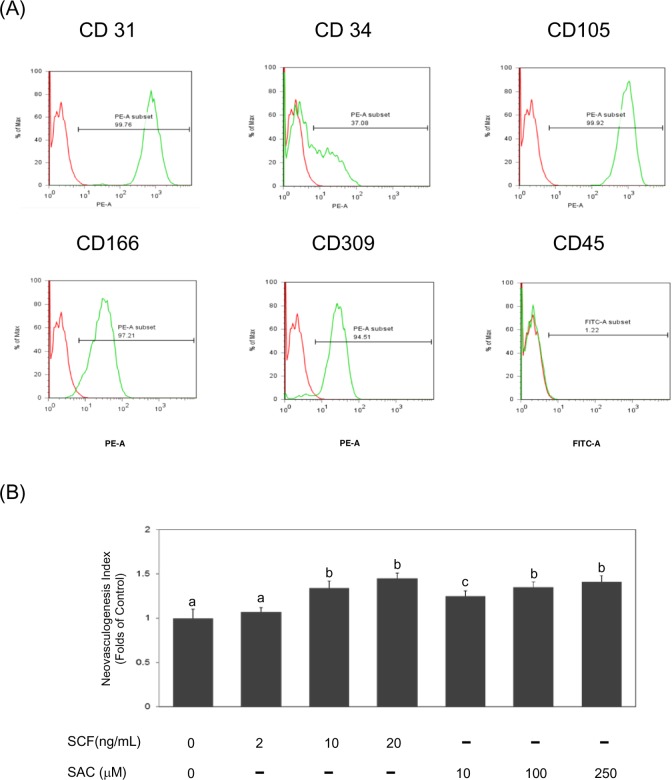Fig. 1.
S-allylcysteine (SAC) effectively induces neovasculogenesis of endothelial progenitor cells (EPCs) in vitro. Characterization of EPC-specific cell surface antigens by flow cytometry analysis (A). EPCs were in the condition of stem cell factor (2, 10, and 20 ng/mL) or SAC (at concentrations of 10, 100, and 250 μM) for 8 h until the analysis of neovascularization (B). The values, mean ± standard deviation, were represented as neovasculogenesis index (folds of tube formation in comparison with the untreated control subgroup) in 8 randomly selected fields of each culture dish. Results of each subgroup were measured in triplicate and repeated twice. A different letter indicates a statistically significant difference among different subgroups (P < 0.05).

